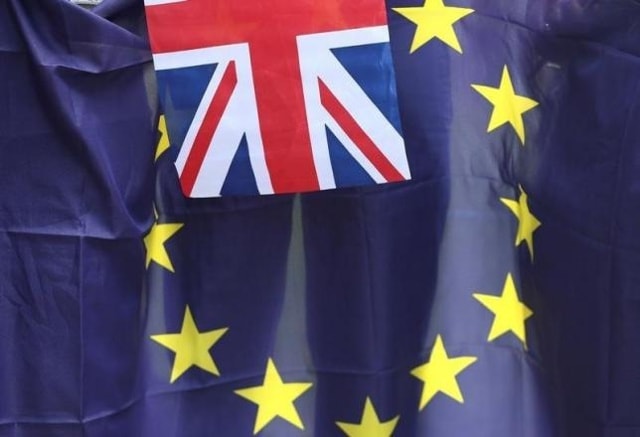Will Britain taste 'bitter fruit' after Brexit?
(Baonghean.vn) - Although it has been 2 days since the British people decided to leave the EU, Europe is still in shock because this is an unprecedented event in the more than 60 years of the formation of this Union.
And many questions are now being asked about what happens next, including what steps the UK and EU need to take to formally part ways.
 |
| A British flag flies in front of an EU flag during a campaign to remain in the EU in Parliament Square in London, Britain on June 19, 2016. Photo: Reuters. |
1. What is really happening?
The EU has never had to deal with a situation like the one the UK is facing now. A provision for member states to leave is provided for in Article 50 of the Lisbon Treaty, but this is very general, consisting of only five short and simple paragraphs.
The two sides will have a period of two years to negotiate the terms of the divorce, but many opinions say it will take even longer to establish a new trade relationship between the UK and the EU.
The person who proposed the referendum, British Prime Minister David Cameron, has announced his resignation. And analysts say that Mr. Cameron's successor is unlikely to be a Conservative, and the outcome will not be known until October.
The most talked about candidate right now is Boris Johnson, one of the leaders of the Brexit camp. And he has expressed that there is no need to rush into negotiations with the EU.
There are two options that EU officials could consider: a quick divorce under Article 50 of the Lisbon Treaty and a two-year separation. The other is to create a completely new economic relationship agreement that is agreed by all EU members, which would take much longer.
According to analysts, there are several options open to the UK, such as maintaining access to the EU's single market, as Switzerland and Norway currently enjoy. But in return, the UK must open its borders to EU immigrants and accept relevant EU laws.
Article 50 of the Lisbon Treaty also states that a former EU member state can seek to rejoin the union, under the provisions of Article 49. However, this means that the membership process will start from scratch.
“Brexit” also requires the remaining 27 EU member states to approve the UK’s withdrawal agreement with a “sufficient majority”, after which the European Parliament also votes to approve it with the necessary majority.
2. What will the EU be like after the UK chooses to leave the union?
One of the first necessary actions is for the EU to quickly find a way to plug the €7 billion annual budget gap, which the UK has committed to contribute until 2020.
The EU also needs to clarify as quickly as possible the rules for individuals and businesses using their EU membership to do business. The UK will no longer hold the rotating presidency of the European Council of Ministers, which begins in July next year as scheduled.
And the EU will have to find another member to replace it, possibly Estonia, Malta or Croatia. In particular, EU officials will have to focus their efforts on maintaining stability and unity in the bloc, as the results of the UK referendum have begun to show signs of causing a domino effect.
However, in theory, nothing will change immediately at this point. In principle, Britons will remain EU citizens.
But the worrying thing is that Britain could see a split from within, as Scotland seeks independence to stay in the EU, and this could be the next bitter fruit for Britain to bear.
Lan Ha
(According to AFP)
| RELATED NEWS |
|---|


